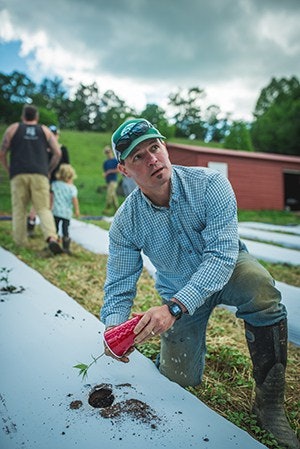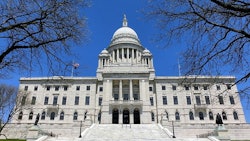After a weekend spent in Athens, Ga., opening a new Franny’s Farmacy franchise, co-owners Jeff and Franny Tacy returned home to Hickory, N.C., to do it again. On Feb. 6, the couple will kick off several days of celebration for the grand opening of their latest CBD retail franchise location. Jeff, speaking with Hemp Grower, said it was a thrill to get so many of the brand’s supporters in one place, all looking forward to where the company is headed. “The weather was horrible, but we managed to still get a huge turnout,” he said.
 frannys farmacy
frannys farmacyIn Hickory, the party will last through Sunday. The Franny’s team will be on-site to talk with customers and give away raffle prizes, keeping their doors open to the whole community. By the end of the year, the company hopes to have 20 to 25 such retail storefronts open in the U.S., a significant move for the customer-facing side of the branded CBD market.
The company began in 2012 in North Carolina, after Jeff and Franny purchased land in Leicester County and set out on a goal of combining his entrepreneurial experience in the business world with her agricultural experience in the plant science world. As the U.S. hemp industry was emerging from decades of prohibition, in 2017, Franny’s Farm turned to hemp. The future was bright.
“We’re all about community,” Jeff said. “My wife and I started in this industry as a project to figure out whether growing hemp is a good replacement crop for tobacco for western North Carolina farmers. And we've stuck to those values throughout. The cool thing is, because of the fact that we've gone out and built this vertical integration of businesses where we have manufacturing, wholesale, retail, franchising and all that, we're able to support more farmers at this point”
Jeff said that the Franny’s Farmacy vision is one of horizontal growth following vertical integration. Building a franchise model in the hemp space allows the company to work with other smaller farmers, all of whom may then funnel into the vertical silo under the Franny’s business umbrella.
“The retail outlet gives me the benefit of having all the customer interactions,” Jeff said. “We get to have the conversations and see what kind of information they have at their disposal out there.” And in dealing with other CBD companies, the Franny’s team has retail storefronts where products may be brought in and shared for possible wholesale business.
And while these aren’t state-regulated, THC-rich cannabis dispensaries (a regulatory fact on which Jeff and the team must constantly work to educate local governments), the Franny’s business model staffs its store with “budtenders” who engage customers’ questions on a deeper, personal level. This comes not only from Franny’s Farmacy’s training manuals, but also from the team’s research-based approach to discussing CBD with customers.
Jeff pointed to decades of published literature from Israeli plant scientists and geneticists, all of which may be used to discuss hemp biomass extraction and minor cannabinoid development with customers who are still trying to understand this marketplace.
It’s an active learning process.
Each grow season brings its own challenges and its new spin on the hemp learning curve, and Jeff said that the team is looking forward to expanding their knowledge each day.
“Having not been commercial-size cannabis growers before, [we’ve been] learning how to properly prep fields and amend the soils and get ready for the clones,” he said. “Throughout the whole process, [success comes down to] being able to troubleshoot and understand what's going on with the plants and how to properly and appropriately treat the plants. It's been a huge learning curve.”
And on the agricultural side, Jeff cited a problem that many hemp growers are confronting in the early stages of the industry: a lack of consistent feminized seed stock on the market and a low germination rate with what is out there. For hemp growers interested in capitalizing on the rapidly increasing demand for CBD products, this is a huge issue. On the horizon, Jeff said that he sees a lot of genetic development—work that will help increase yields, increase CBD content and keep THC content down. As the USDA and the FDA continue to hammer out regulations for all aspects of this industry, that genetics work is paramount.
“We are trying to stay ahead of the curve, trying to read every single piece of literature that's out there and look at all the different legislation that's being considered,” he said. “And we’re making sure that we operate within what we think the future confines of this industry are going to be, so that we don't do anything now that we have to go back and redo or fix later.”


























